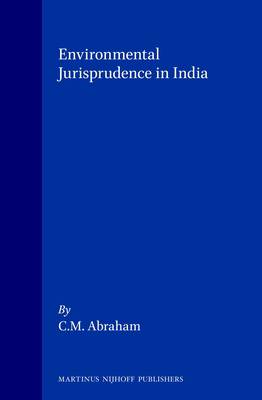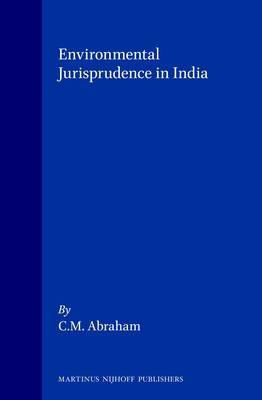
- Afhalen na 1 uur in een winkel met voorraad
- Gratis thuislevering in België vanaf € 30
- Ruim aanbod met 7 miljoen producten
- Afhalen na 1 uur in een winkel met voorraad
- Gratis thuislevering in België vanaf € 30
- Ruim aanbod met 7 miljoen producten
Zoeken
Omschrijving
Within the last two decades, India has not only enacted specific legislation on environmental protection but has also virtually created a new fundamental right to a clean environment in the Constitution. The models and methods adopted in the Indian context appear, at first sight, similar to those in other common law systems. Yet there are many subtle differences which have changed the structure and content of legal development in India. Indian environmental jurisprudence brings out the unique characteristics of a new legal order which has gradually been established in India.
The distinguishing nature of this jurisprudence, as this book shows in detail, has three interconnected elements. First, the nature of the new Indian constitutional law regime accords greater importance to public concerns than protecting private interests. Secondly, this jurisprudential development reflects certain aspects of Indian legal culture, through implicit and explicit reliance on autochthonous values and concepts of law, encapsulated in the Indian juristic postulate of dharma. Thirdly, the emerging Indian environmental jurisprudence bears testimony to the activist role of the Indian judiciary which has also had a significant impact in many areas other than environmental law. In short, the development of environmental jurisprudence in India manifests neo-dharmic jurisprudence in postmodern public law. It accommodates ideas currently voiced by experts around the world for protecting the environment in forms modified by the Indian legal culture.
The distinguishing nature of this jurisprudence, as this book shows in detail, has three interconnected elements. First, the nature of the new Indian constitutional law regime accords greater importance to public concerns than protecting private interests. Secondly, this jurisprudential development reflects certain aspects of Indian legal culture, through implicit and explicit reliance on autochthonous values and concepts of law, encapsulated in the Indian juristic postulate of dharma. Thirdly, the emerging Indian environmental jurisprudence bears testimony to the activist role of the Indian judiciary which has also had a significant impact in many areas other than environmental law. In short, the development of environmental jurisprudence in India manifests neo-dharmic jurisprudence in postmodern public law. It accommodates ideas currently voiced by experts around the world for protecting the environment in forms modified by the Indian legal culture.
Specificaties
Betrokkenen
- Auteur(s):
- Uitgeverij:
Inhoud
- Aantal bladzijden:
- 192
- Taal:
- Engels
- Reeks:
- Reeksnummer:
- nr. 2
Eigenschappen
- Productcode (EAN):
- 9789041111692
- Verschijningsdatum:
- 1/09/1999
- Uitvoering:
- Hardcover
- Formaat:
- Genaaid
- Afmetingen:
- 164 mm x 250 mm
- Gewicht:
- 226 g

Alleen bij Standaard Boekhandel
+ 485 punten op je klantenkaart van Standaard Boekhandel
Beoordelingen
We publiceren alleen reviews die voldoen aan de voorwaarden voor reviews. Bekijk onze voorwaarden voor reviews.








